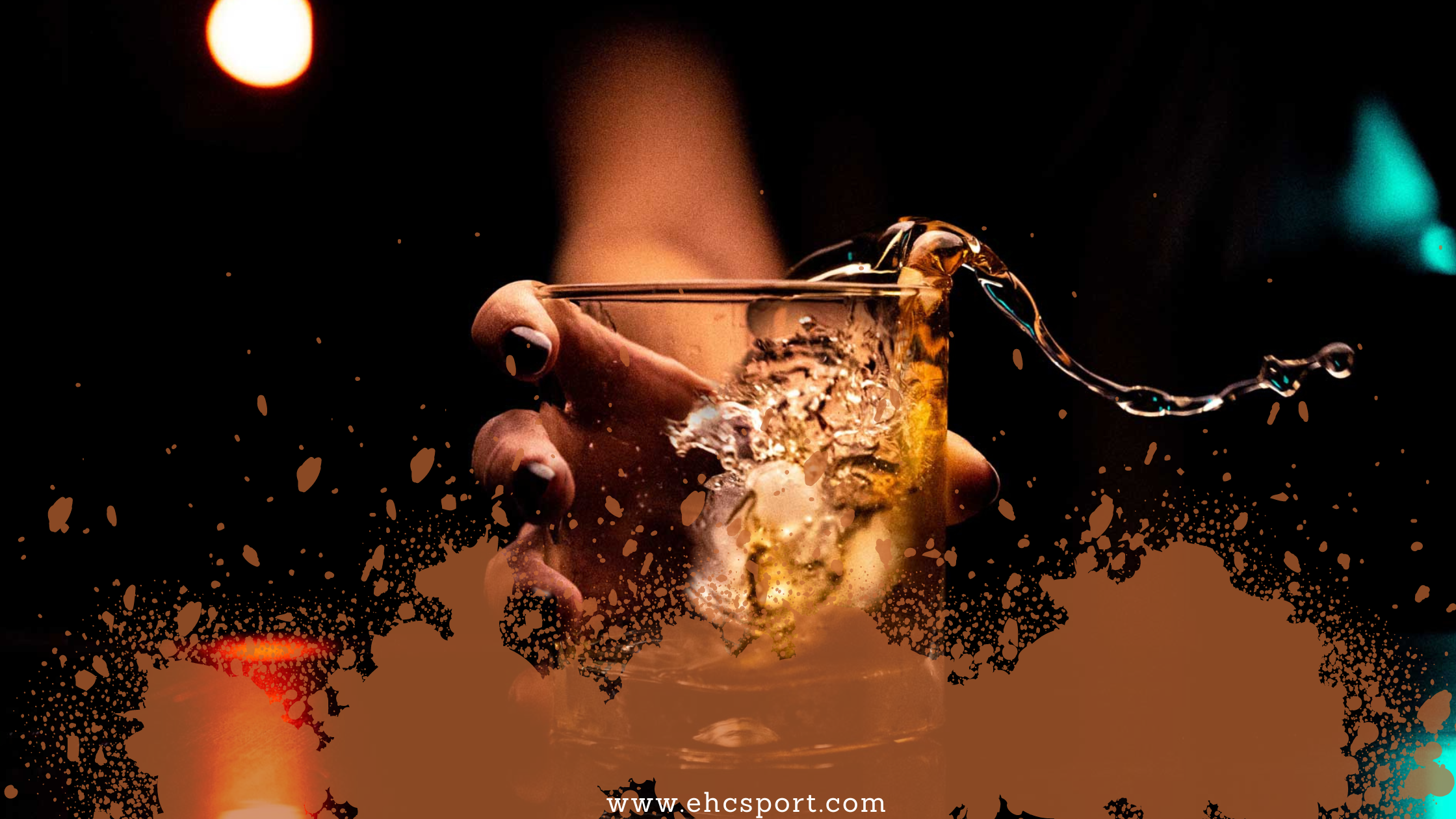The Effects of Alcohol on the Body When Training for Combat Sports
Introduction:
Alcohol consumption is a common part of social life for many, often enjoyed in moderation without significant impact on day-to-day activities.
However, for athletes training in combat sports, the stakes are much higher. The effects of alcohol extend beyond a simple hangover, potentially hindering performance, recovery and overall progress in training.
In combat sports, where precision, endurance and quick decision-making are crucial, even occasional drinking can have a detrimental effect.
Understanding how alcohol interacts with the body is essential for athletes committed to reaching their peak potential, as it impacts everything from muscle recovery and hydration to mental sharpness and reaction time.
Recognising these effects can help combat athletes make more informed choices, ultimately leading to better performance and longevity in their sport.
The Science Behind Alcohol and Athletic Performance
When alcohol is consumed, it is rapidly absorbed into the bloodstream through the stomach and small intestine and then metabolised primarily by the liver. The liver breaks down alcohol into acetaldehyde, a toxic substance, which is then further metabolised into acetate and eventually expelled from the body.
However, this metabolic process can’t keep pace with high levels of alcohol intake, leading to its accumulation in the bloodstream. One of the most notable effects of alcohol is on the central nervous system, where it acts as a depressant. This results in slowed brain activity, impaired neurotransmitter function and disrupted communication between the brain and muscles. These disruptions severely impact motor skills and coordination, which are crucial for athletes, especially in combat sports.
The effects of alcohol on motor skills not only degrade performance but also heighten the risk of injuries, making it a significant concern for those seeking optimal athletic results.
Alcohol’s Impact on Muscle Recovery and Growth
The effects of alcohol on muscle recovery and growth can be detrimental for athletes, particularly those involved in rigorous training like combat sports.
Alcohol interferes with protein synthesis, the process by which the body builds and repairs muscle tissues. By reducing the rate of protein synthesis, alcohol hinders muscle growth and delays recovery, making it harder for athletes to see the gains from their training efforts.
Additionally, alcohol acts as a diuretic, leading to dehydration and a loss of essential electrolytes, which are critical for muscle function. This can increase the risk of cramps, muscle strains, and other injuries. The effects of alcohol don’t stop there; it also disrupts sleep patterns, further impeding the body’s natural recovery processes. The combined impact results in prolonged recovery times, reduced muscle gains, and a greater likelihood of injuries, ultimately hindering athletic performance and progression.
Effects on Cardiovascular Fitness
The effects of alcohol on cardiovascular fitness can significantly impair an athlete's performance, particularly in endurance-based activities like combat sports.
Alcohol negatively impacts cardiovascular function by reducing the efficiency of the heart’s ability to pump blood, leading to decreased circulation. This, in turn, affects the delivery of oxygen to muscles, which is crucial for sustaining energy and endurance during training sessions.
Additionally, alcohol can cause an imbalance in heart rate and blood pressure, putting extra strain on the cardiovascular system. These effects of alcohol result in reduced stamina, quicker onset of fatigue, and diminished overall performance. For athletes, maintaining optimal cardiovascular health is essential and alcohol’s disruptive impact on oxygen transport and endurance can undermine even the most rigorous training regimens, making it a critical factor to consider for anyone serious about their athletic goals.
Dehydration and Electrolyte Imbalance
The effects of alcohol as a diuretic can lead to significant dehydration, which poses serious risks to athletic performance and recovery.
Alcohol increases urine production, causing the body to lose fluids and essential electrolytes like sodium, potassium, and magnesium. This disruption in hydration levels not only leaves athletes feeling sluggish but also impairs muscle function, coordination, and overall endurance.
Dehydration from alcohol can exacerbate muscle cramps, delay recovery, and increase the risk of injuries, all of which are detrimental for those in training, especially in demanding sports like combat disciplines.
Maintaining proper electrolyte balance is crucial for optimal muscle performance and recovery, and the effects of alcohol can severely compromise this balance, making it harder for athletes to perform at their peak.
For those committed to their fitness and performance, understanding these effects of alcohol on hydration and electrolytes is key to avoiding setbacks and ensuring consistent progress.
Impaired Sleep and Recovery
The effects of alcohol on sleep can significantly disrupt an athlete’s recovery and overall training progress.
Alcohol may initially make it easier to fall asleep, but it reduces sleep quality by interfering with REM sleep—the deep, restorative stage essential for muscle repair and cognitive function. This disruption leads to fragmented sleep patterns and prevents the body from fully recovering after intense training sessions.
Adequate sleep is critical for muscle repair, hormone regulation, and overall physical and mental recovery, making it a cornerstone of athletic progress. The effects of alcohol-induced poor sleep can accumulate over time, resulting in chronic fatigue, decreased performance, slower reaction times and impaired decision-making.
For athletes, especially those in combat sports where precision and quick reflexes are crucial, the long-term effects of alcohol on sleep can severely undermine their potential, making it essential to prioritise quality rest as part of their training regimen
Reduced Mental Focus and Decision-Making
The effects of alcohol on cognitive function can significantly diminish an athlete's mental sharpness, which is vital in combat sports where quick decision-making and precise reactions are crucial.
Alcohol impairs brain function by slowing down neural activity, which results in delayed reaction times, decreased focus, and poor decision-making.
This cognitive decline not only affects training but can also lead to critical errors during competition, such as misjudging an opponent’s movements or executing techniques inaccurately.
In combat sports, where split-second decisions can determine the outcome of a match, the effects of alcohol can put athletes at a considerable disadvantage. Impaired judgment and slowed reflexes increase the risk of mistakes and potential injuries, making it essential for athletes to be mindful of alcohol’s impact on their mental performance if they want to stay at the top of their game.
Increased Risk of Injuries
The effects of alcohol on coordination and reaction times can significantly increase the risk of injuries for athletes, especially in high-stakes sports like combat disciplines.
Alcohol impairs the central nervous system, leading to decreased motor skills, slower reflexes, and poor coordination—all of which heighten the likelihood of accidents and injuries during training or competition.
Studies have shown that athletes who consume alcohol are more prone to sports-related injuries, with one research finding that nearly 55% of sports injuries in a collegiate setting were linked to alcohol consumption.
Additionally, alcohol’s impact on muscle recovery and hydration further exacerbates this risk, as muscles remain weaker and more susceptible to strains and tears.
The cumulative effects of alcohol create a perfect storm for injuries, making it essential for athletes to be aware of these risks and take steps to minimise alcohol consumption if they aim to train safely and effectively.
- Impact on Weight Management and Body Composition
The effects of alcohol on weight management and body composition can be significant, particularly for athletes focused on maintaining optimal performance levels.
Alcohol is calorie-dense, providing empty calories that contribute to weight gain without offering any nutritional value. With seven calories per gram, alcohol can quickly add up, leading to fat accumulation, especially around the midsection.
Additionally, alcohol disrupts metabolism by prioritising the breakdown of alcohol over other nutrients, which slows down the body's ability to burn fat. This metabolic interference can hinder weight management goals, as the body becomes less efficient at processing fats and sugars.
The effects of alcohol extend further by impairing judgment and increasing cravings, often leading to poor dietary choices that derail healthy eating habits. For athletes and individuals serious about their fitness, understanding the effects of alcohol on weight and body composition is crucial to staying on track with their goals.
- Long-Term Consequences for Athletes
The long-term effects of alcohol on athletes can severely impact their health and performance.
Regular alcohol consumption strains the liver, leading to issues like fatty liver disease and cirrhosis, which hinder the body's ability to detoxify and produce energy.
Alcohol also affects the cardiovascular system, increasing blood pressure, disrupting heart rhythms and weakening the heart muscle, all of which reduce endurance and athletic performance.
These effects can shorten an athlete's career and compromise long-term health, making it crucial for athletes to understand and manage the risks associated with alcohol consumption.
Tips for Combat Athletes Who Choose to Drink
- Moderation and Timing:
- Limit alcohol intake and avoid excessive drinking.
- Avoid drinking close to training or competition days to minimise its impact on performance and recovery.
- Hydration Strategies:
- Drink plenty of water before, during, and after alcohol consumption to counteract its diuretic effects.
- Include electrolyte-rich drinks to replenish lost minerals and maintain balance.
- Recovery Tips:
- Prioritise quality sleep to aid in muscle repair and overall recovery.
- Eat nutrient-dense meals rich in protein, vitamins, and antioxidants to support recovery.
- Allow extra time for muscle repair and adjust training intensity if needed after drinking.
These practices can help combat athletes minimise the negative effects of alcohol while maintaining their training and performance.
Conclusion
Alcohol can significantly impact training and performance, affecting everything from muscle recovery and cardiovascular fitness to coordination, hydration and mental sharpness.
For combat athletes, these effects can hinder progress and increase the risk of injuries, making it crucial to understand how alcohol interacts with the body.
By making informed choices about alcohol consumption and prioritising moderation, athletes can better manage these risks.
Ultimately, prioritising health, performance and recovery is key to achieving long-term success in combat sports, and every decision—including those about alcohol—should align with these athletic goals.


Share:
How Probiotics Support Gut Health and Longevity
The Power of Maca Root: A Comprehensive Scientific Review of Its Mechanisms